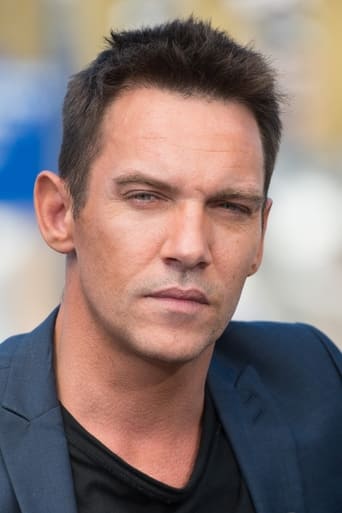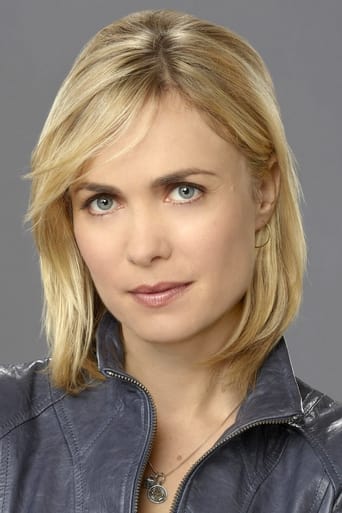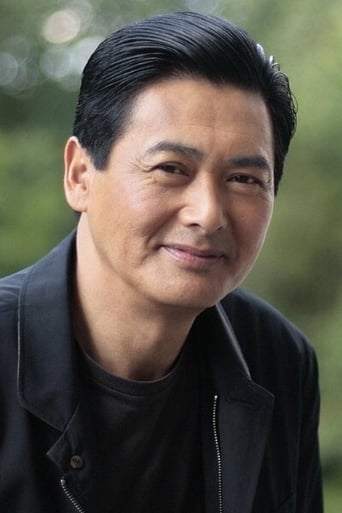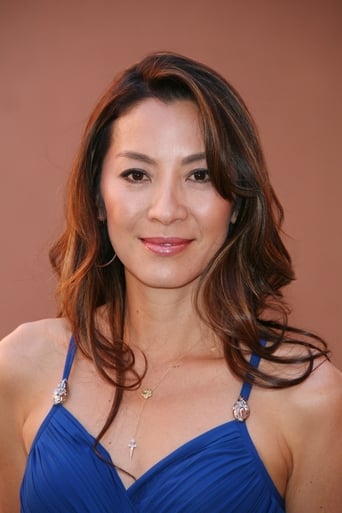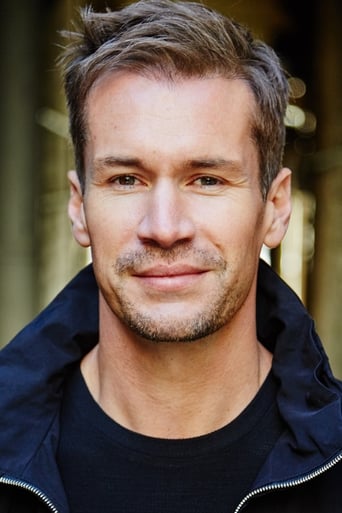Clevercell
Very disappointing...
BootDigest
Such a frustrating disappointment
SnoReptilePlenty
Memorable, crazy movie
VeteranLight
I don't have all the words right now but this film is a work of art.
ma-cortes
Gripping and intense film depicting terrible deeds during Japonese invasion in Shangai and Nanjing (1937) . After that, at the city take place violations, mutilations, and massacres. Some prisoners are interred in a prison camp but later they are led to fire squad, scaffold and alive burying. Later on , an orphaned children group escapes led by the journalist named George Hogg (Jonathan Rhys Meyers), a nurse (Radha Mitchell) and a communist Chinese (Choe Yun Fat).Director de-glamorizes war showing true horror and terrible events . It's a staggering evocation of the Chinese Holocausto in Nanjing , as the atrocities are depicted matter of factly as by-product of sheer Japanese evil. The opening twenty minutes in which the reporter appears as hidden observer turns out to be a graphic depiction the facing off is , on its own, and is magnificent . As the exciting beginning results to be pretty stirring , the developing of the movie regarding invasion China is partially similar to ¨Empire of the sun¨ and suffering of the children on the escape is really moving . The starring, Jonathan Rhys Meyers, and the rest of the cast are excellent , as the movie is powered by splendid performances in charge of American and Chinese actors who during filming suffered some inevitable pains for the hard environment . Filmed in perfect color by cameraman Zhao , reflecting appropriately the Chinese scenarios . Spottiswoode makes a breathtaking work which directs spectacularly with groundbreaking scenes in a heartbreaking context . He dedicated long time joining information and interviewing experts for that scenes would adequate to reality of events. This masterpiece finally didn't garner the world attention and respect that the story deserve and had a regular box office . The motion picture is acceptably directed by Robert Spottiswoode who realizes a spectacular and impressive production. He's a successful director from TV movies and cinema, as terror genre(Terror train), adventures(Air America,Shoot to kill), Scif-Fi (6th day), James Bond film(Tomorrow never dies), and his best movie is ¨Under fire¨.The film is based on actual events about George Hogg , a courageous British reporter , who along with a brave nurse saves a group of orphaned children during the Japanese occupation of China in 1937, these are the following : George Aylwin Hogg (1915-July 22, 1945) was an English adventurer. He was a graduate of Oxford University in economics. He is known as a hero in China for helping New Zealander Rewi Alley save 60 orphaned boys during the Second Chinese-Japanese War, including leading them 700 miles (1,100 km) through dangerous mountain passes, escaping the approaching Japanese secret police in the Shaanxi area .Hogg then decided to relocate the boys to Shandan in Gansu Province 700 miles (1,100 km) away. The first half (33) left in November 1944 and in January 1945, the remaining 27 boys followed. They traveled heavily snow-covered mountain roads by foot. After a month of travel by foot, 450 miles (720 km), they arrived in Lanzhou.Hogg hired six diesel trucks to complete the trip. Early March 1945, Hogg and his boys arrived in Shandan. Alley rented some old temples, turned them into classrooms and workshops, and appointed Hogg as headmaster .
siderite
This is like a Schindler's List for the Chinese. It's a war story that focuses not on the terror and pain and atrocities, but on the good a person can do and it is based on a true story. Something that needs to be told and remembered.That being said, was it a well told story? Yes and no. It seemed terribly fragmented to me, moving from one scene to the other with the speed of a bullet. It is hard to "feel" the individual character changes because it all happens so fast. Of course, I couldn't expect a two hour movie to slowly tell a story that spanned many months in real life, but still. You can't show two friends entering China, then one dying and completely omit him from the story from then on because you don't have time. On the other hand, I hardly see the subject as appropriate for a mini series.Bottom line: good story, good acting, watch it if you feel the need for a good war time drama that inspires.
smatson123
Who was George Hogg, really? Do an Internet search and you'll see that his name is variously interpreted as a "footballer," a midshipman on the Titantic, and various unknowns in genealogy charts. But Nie Quangpei, a Chinese orphan whose life Hogg saved, had this to say: "They say there isn't a perfect man in this world, but Hogg was." Nie,now a middleaged tradesman in the PRC, seems to have had more insight into the forging of character than the writers and director (Australian Roger Spottiswoode) of the film. "He changed," says Nie of Hogg's transformation from a raw university graduate to a father figure to 60 boys under extraordinary circumstances. "He became a different man."While the facts are not widely public except to Sinophiles, they are impressive on their face. An English blueblood and Oxford grad, the handsome Hogg (Jonathan Rhys Meyers)tried his hand at journalism in wealthy, up-and-coming Shanghai and could have led the good life for the duration of WWII. Instead he connected with a like-minded benefactor, Rewi Alli, to determine what could be done with orphans and the homeless. After mastering Mandarin he became the headmaster of Shuangshi-pu school, mostly for orphans, in a northwestern province. He made a success of teaching and administering there until fear of the oncoming Japanese invasion convinced him to leave. Managing to cross some 600-700 miles in the dead of winter with children and books on carts, he re-established them in a converted monastery--all with little help and few resources. Though keenly aware of the irony of staying in China while his own country was under threat, Hogg came to terms with who he was and was deeply loved by his charges in the process. Today a statue in his honor stands in his final resting place in Shanan, Gansu.Spottiswoode, though, prefers to go for the blood, sex, and supposedly, the glory. Briefly seen as a journalist at parties in Shanghai, his Hogg finds a way to make it to Nanking to get the perfect story on the Japanese invasion, but while there nearly suffers a beheading when the invaders discover him. (In reality, the Japanese had their hands full with just dispatching locals with guns--the efficient killing method of choice--for the most part ignoring Westerners.) Just in the nick of time, Hogg is saved by a counter-revolutionary (a suave, goatee-bedecked Chow Yun Fat) and a beautiful American nurse, Lee (Australian Radha Mitchell), whose presence in circumstances of extreme personal peril is never entirely explained. But no matter: she is portrayed as the one who convinces Hogg to take shelter in an orphanage, to learn Chinese and otherwise take a breather. As she comes and goes to the orphanage, her existence means a film opportunity for romance, as though Hogg's real-life challenge of adapting to near-starvation conditions and nurturing traumatized children could have been inspiration enough for anyone. A hint of a love triangle also surfaces in the person of a beautiful, exquisitely dressed local merchant of opiates (Michelle Seoh) who will go to any lengths to serve Hogg's cause.History, as documentarian Ken Burns has proved, can be compelling in its own right. It can both stranger than fiction and more powerful, as we see the choices others have made that we do or don't choose to emulate. A decent tribute to Hogg's life would have demanded that his unheralded acts stand in stark relief to the pointless cruelties of war around him. That didn't happen in this movie. His legacy to the weak and unfortunate lives on, most recently in a book published this January in Beijing (Ocean Devil, by James MacManus). And final testimonies at the end of "Children of Huang Shi" from boys saved by Hogg--boys who are now in late middle age--do something to capture the essence of respectful biography but still, not nearly enough. The movie was exquisitely filmed in Chinese and Australian locales at a 40 million budget and unfortunately has grossed only 691,000 as of late July. If history and film could align a little more closely, I like to think that both the audience and box office would have profited.
Samuela55
This is a top quality movie; it is inspirational. Jonathan Rhys Meyers' acting was superb. The scenery was beautiful and the children were touching. I highly recommend this movie. Here was a true hero in every sense of the word. George Hogg risked his life to save the lives of innocent children. He also risked his life to publicize the truth. His parents were courageous pacifists. He struggled with the dilemma of when pacifism is appropriate and when fighting back is appropriate. Yun-Fat Chow and Michelle Yeoh were also outstanding in their roles. It was interesting and informative regarding a period of history and location that is not that widely known about in the West.


